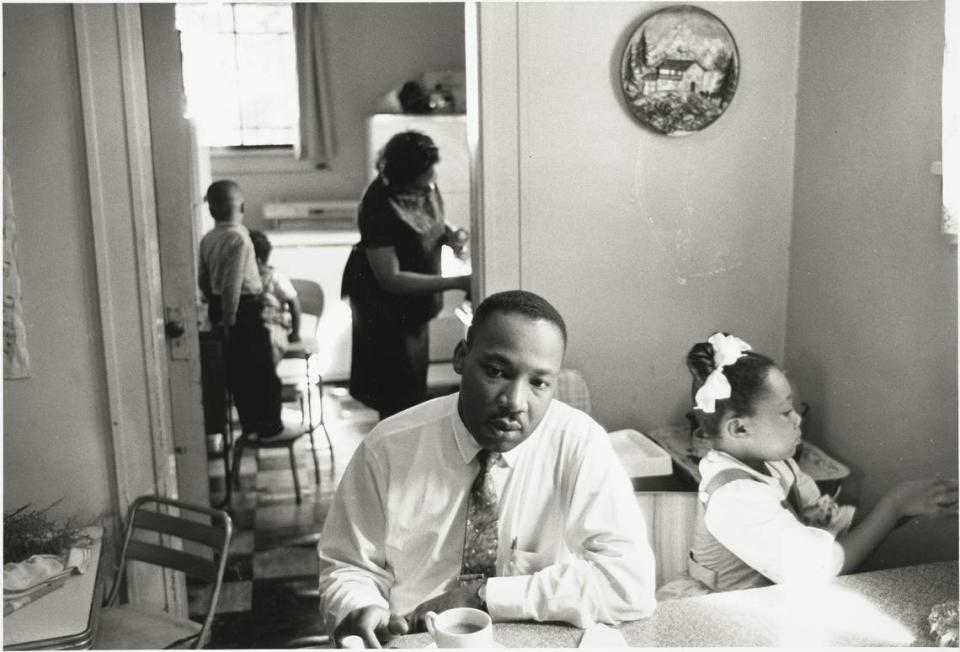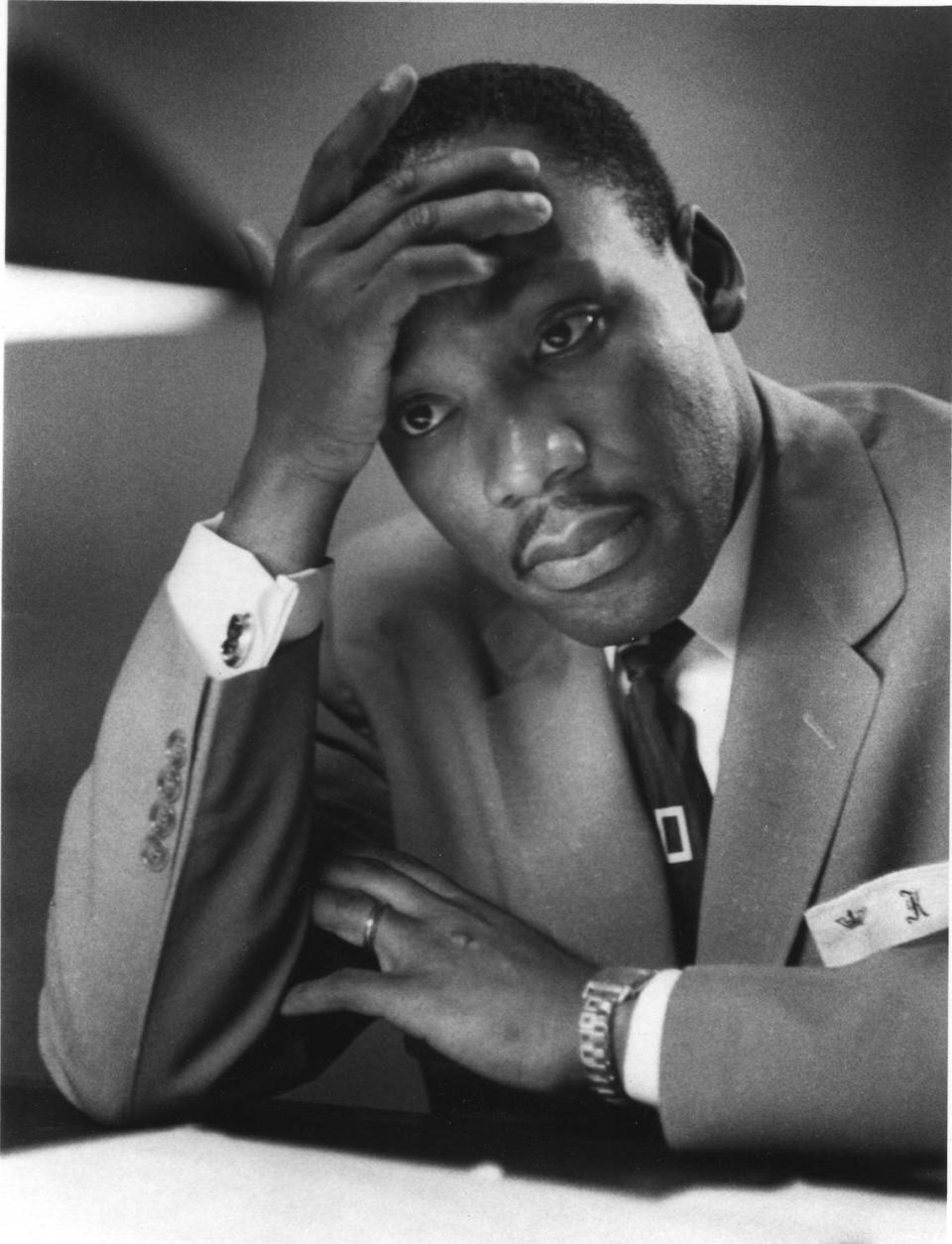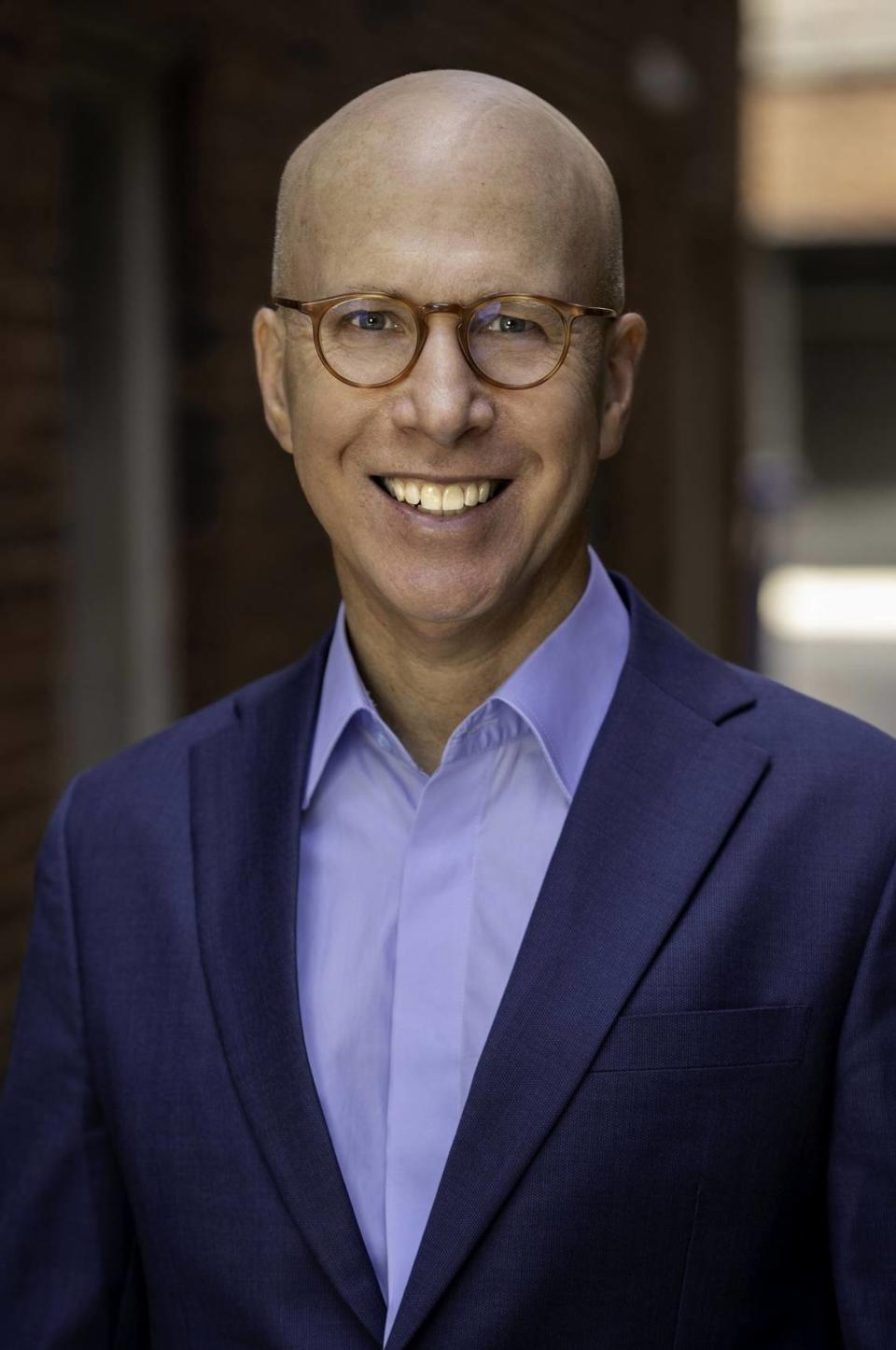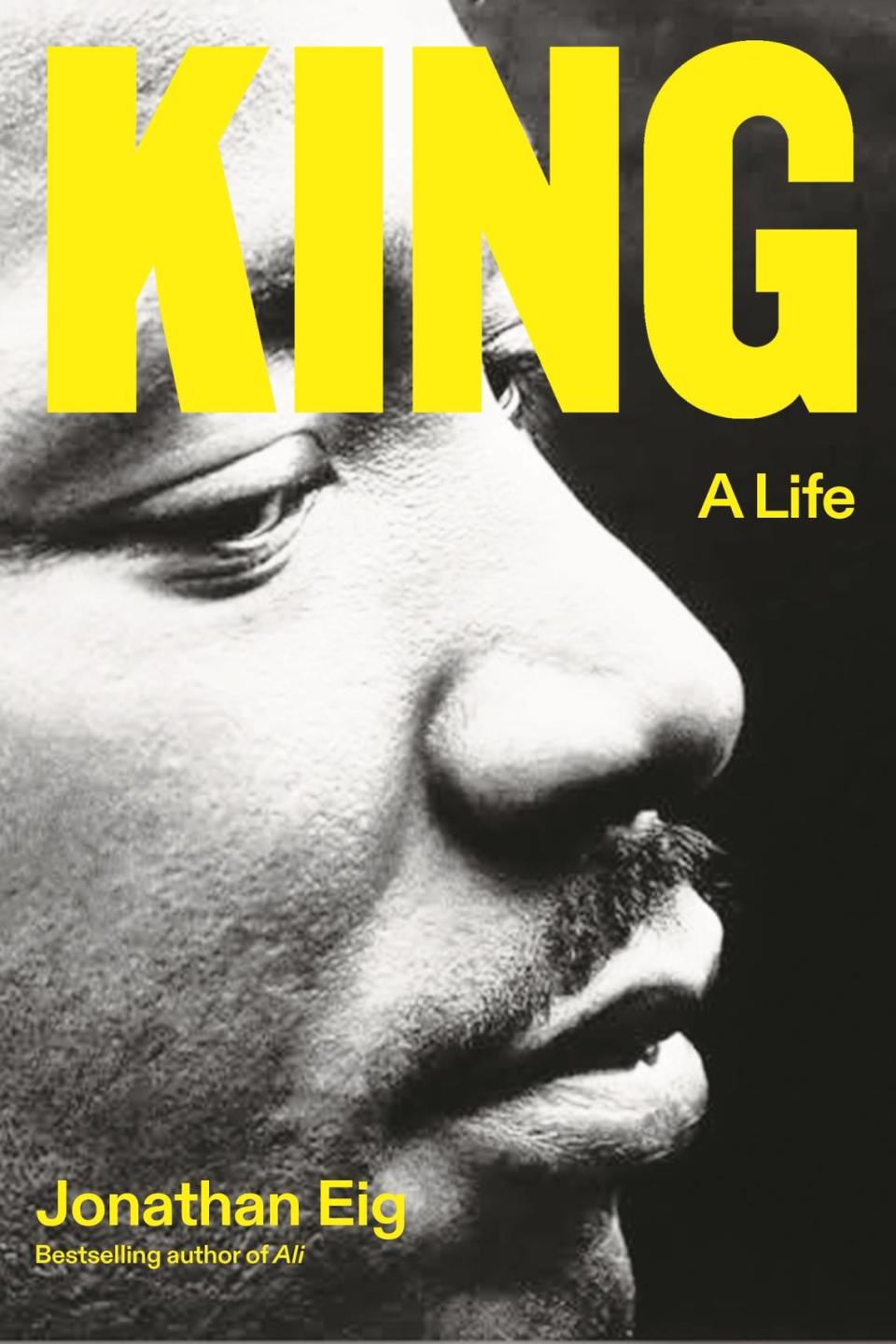Author of new MLK biography talks surprises, misconceptions about the civil rights icon
- Oops!Something went wrong.Please try again later.
- Oops!Something went wrong.Please try again later.
For the first time in 40 years, a comprehensive new biography of Martin Luther King Jr. takes another look at a man etched into the nation’s history.
Jonathan Eig, a New York Times bestselling author, spent six years researching and writing his biography, King: A Life, featuring newly released FBI information.
Now he’s coming to Charlotte to talk about his work. Charlotte’s Levine Museum of the New South and WFAE will host a discussion and book signing of Eig’s new biography about at the Knight Theater on July 21.
“King: A Life,” is the first major biography of MLK to be published in 40 years, according to Eig’s website. The book is the product of six years of research, including use of personal papers from King’s family and friends, as well as newly released FBI files.
Eig’s other biographies include “Ali: A Life,” “Get Capone,” “Opening Day: The Story of Jackie Robinson’s First Season” and “Luckiest Man: The Life and Death of Lou Gehrig.”
The Charlotte Observer recently spoke with Eig. This conversation had been edited for length and clarity.

This is the first biography on Martin Luther King Jr. in four decades. Do you think the story of his life reads differently today, post-Black Lives Matter movement?
There’s no question that King’s life looks different today than it looked in the 1980s when the last biography was written. We’re seeing ripple effects from our failure to deal with the racism that he called out so strongly. We’re still seeing massive segregation in American cities. We’re still seeing controversy over affirmative action and reparations, income inequality, incarceration rates, all of these issues that he talked about are still with us. And in some ways, racial tension has grown worse in the last decade or so. So I think King’s words echo in a different way now.
What are some of the surprising things you learned throughout your research about him?
I was surprised at how much he suffered from depression and anxiety. I was surprised at how much he cheated on his wife, to be perfectly honest. But I was even more surprised by how egregiously the FBI weaponized his extramarital affairs in an attempt to destroy him. So there were a lot of surprises.
What would you say is the most common misconception or misperception about MLK that you looked into in the book?
Probably the most common misperception is that he was this conservative figure who was all about peace and love. Malcolm X and others tried to portray him as this safe figure, that he was sort of the white man’s protest leader. And that just wasn’t true at all. King was much more radical, and I would argue, much more dangerous than Malcolm X in a way, because he had people who were following him, who were ready to go to the mats for him and he was able to unite a broader coalition of activists. And he had the attention of the government. He was able to compel change in a way that some of the louder protest leaders were not able to.

It’s easy to mythologize someone like MLK. What humanized him to you?
We do this with a lot of our heroes. We turn them into monuments, and we stop thinking about them as people. And so I wanted people to feel like they can relate to King. I wanted to remind people that he chewed his fingernails and he smoked cigarettes and had to hide them from his kids. And he had a dog, and shouted at the TV screen when he watched game shows.
And I do that for a reason because we need to remember that ordinary people become heroes. And that King had doubts, he didn’t really want to be the leader of the Civil Rights Movement. At first, no one else would do it if he didn’t step up. And then he felt called by God to do it, but it wasn’t the easy path. And when you see him as inevitable, then you lose the impact of his story. And I think when you do that, you discourage others from ever stepping up and taking responsibility.
You mentioned that King was not operating in a vacuum. What do you think was so captivating about him that he became synonymous with the Civil Rights Movement, which involved so many active groups and individuals working alongside him?
That’s a great question. Why wasn’t it Ralph Abernathy or Jim Farmer, or any of the other great leaders who were just as brave and just as smart. I think King really emerged because he had this unique set of skills. He was a religious leader, so he had this kind of moral respect. He was a brilliant intellectual, who could combine philosophy, theology and politics. And he was just such a great speaker that everybody who heard him fell under the spell. He just had this ability to reach the masses and to reach across lines of color across lines of north and south. And I just don’t know that there are too many people, or ever in our world, who have that kind of ability.

In the New York Times review, the author wrote about your writing that “he appears to be so in control of his material that it’s difficult to second-guess him.” What went into your research and preparation for this book that allowed you to make the material your own?
Just hard work, you know, I came into this not an expert in the field at all. I spent six years researching this and talking to everybody I humanly could talk to, not just people who knew King, but people who are experts in the field, asking them to help me to educate me — finding new archival documents, finding new recordings. I’ve just worked my tail off to understand this man’s life and his times and to put it into a story that will help us better understand the world we’re living in today.
I was flattered by that quote, that I seem to be in such command of this material that you couldn’t question me. But that’s ridiculous, of course you can question me and you should question me, because there’s no one right way to tell the story or to write a biography. I’m just trying to do enough hard work that I can make a compelling case that this is a fair way of telling King’s story.
Was it an intimidating task to begin this project of breaking down someone who is so idolized?
Oh, God, yeah, it’s scary as hell. I would have dreams or nightmares about these people calling on me and saying, ‘What the hell do you think you’re doing?’ And, ‘You have no right to tell my life story.’ And that’s how I genuinely feel. I have no right to tell these giant stories of these important figures. But if I work hard enough and I do my homework, maybe I can earn the right.
And as for this conversation that’s coming up in Charlotte, what do you like about being able to have conversations about your books post-publication and the ability to interact with your audience?
It’s really interesting, because I work alone for six years and I don’t know how the world is going to respond to the book. And when you get out into the world and you have conversations, it’s fascinating to see what clicks and what doesn’t, what resonates. And I’ve been really amazed so far to see, first of all, just the warm response that the book is getting. People seem open to dealing with King’s flaws. They’re not angry that I mentioned his infidelities.
I think people actually seem to be more inspired by King when they see that he had weaknesses, that he had flaws. And I’m finding that people are very engaged and very interested in the religious piece of the story, that they really see just how much he was moved by the Bible and by Jesus Christ, and how much that really echoes throughout this book. So I’ve been really enjoying just seeing the book through other people’s eyes, and that’s why I love coming to do these kinds of events.

Want to go?
What: Author talk and book signing by Jonathan Eig for “King: A Life”
When: 6:30 p.m., July 21
Where: Knight Theater, 430 S. Tryon St., Charlotte
Cost: Tickets range from $10 to $45.
More details: museumofthenewsouth.org
More arts coverage
Want to see more stories like this? Sign up here for our free “Inside Charlotte Arts” newsletter: charlotteobserver.com/newsletters. And you can join our Facebook group, “Inside Charlotte Arts,” by going here: facebook.com/groups/insidecharlottearts.

